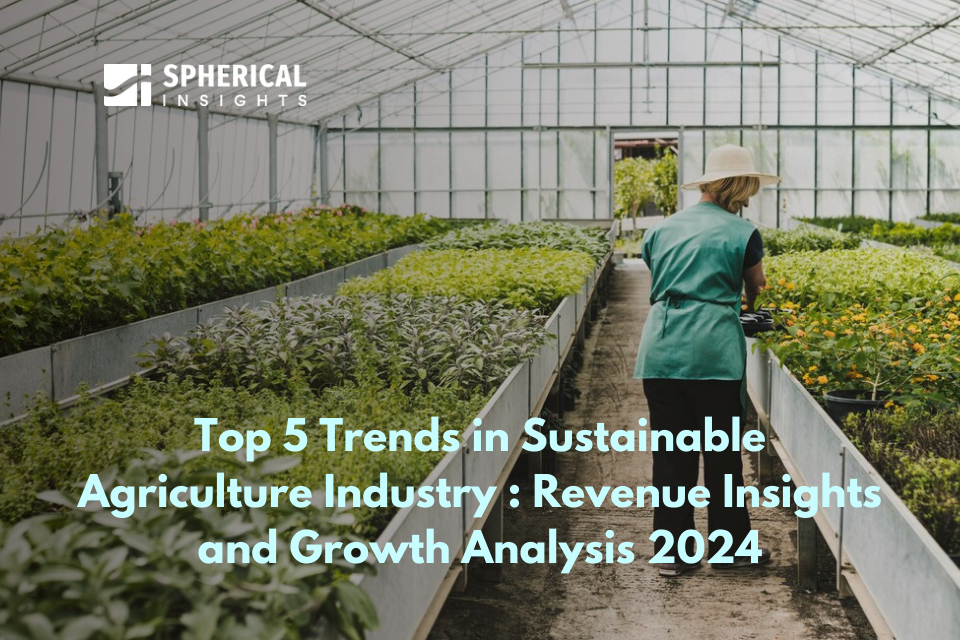
Top 5 Trends in Sustainable Agriculture Industry: Revenue Insights and Growth Analysis 2024
RELEASE DATE: Aug 2024 Author: Spherical InsightsRequest Free Sample Speak to Analyst
Overview
The effective production of high-quality, safe agricultural products while preserving and enhancing the environment, local communities, farmers' livelihoods, and workers' standards, as well as the health and well-being of all farmed animals. The global sustainable agriculture market was valued at USD 14.36 billion in 2023 and is anticipated to reach USD 35.82 billion by 2033, growing at a CAGR of 9.57% during 2023-2033. Using biological resources to produce food and fiber among other goods while taking the environment's effects into account is known as sustainable agriculture.
Advancements in the Sustainable Agriculture Industry
The global market comprises some of the leading companies in the sustainable agriculture industry, such as Nature's Path Foods, Eden Foods, Deere & Company, Trimble Inc., AGCO Corporation, AgJunction LLC, and Raven Industries. Leading market companies are heavily investing R&D to broaden their product offerings, which will encourage more expansion of the sustainable agriculture market. For instance, in April 2024, leading pet care brand Nestlé Purina and well-known agriculture company Cargill have established a strategic alliance. Through this partnership, Purina's dry pet food products in North America will have a lower carbon impact as regenerative agricultural techniques are pushed into the maize and soy supply chains.
Government Initiatives and Regional Market Expansion
- In order to assist farmers in adapting and making future plans, the roadmap lays out changes that will take effect over seven years. The proposals outline how the government intends to develop a new system that is tailored to the interests of English farmers and is centered on support that incentivizes farmers and land managers for sustainable agricultural methods. This new system will be implemented outside of the EU and will not be subject to the bureaucratic Common Agricultural Policy of the EU. The modifications will be made so that, by 2028, farmers in England will be able to financially and sustainably grow nutritious food without government assistance, all the while improving the environment, enhancing the health and wellbeing of animals, and lowering carbon emissions.
- A number of important factors have propelled North America to become the leading player in the market for sustainable agriculture. The region has been able to embrace more sustainable and productive farming methods because to the development of advanced technical infrastructure, precision agriculture, and Internet of Things devices. In particular, consumer awareness and the demand for food produced sustainably are very high in North America. Retailers and food companies now prioritize sustainable sourcing in addition to capitalizing on the market boom as a result of this. Strong legal frameworks and government directives, such as organic certification programs and incentives for conservation, have also been crucial.
Insights and Projections: Global Sustainable Agriculture Market Analysis
The report provides a summary of the global top trends and future prospects for the global sustainable agriculture market based on historical data sets (current trends, industry statistics, and emerging trends shaping the sustainable agriculture industry’s future, preliminary estimates from 2020-2021, 2022, and 2023), as well as projections for the global sustainable agriculture trends and future prospects for global regions in 2024 and 2025. This data-driven research offers users an industry-wide view of emerging technologies and innovative insights to help them make critical business decisions.
Growth Factors and Emerging Trends in the Sustainable Agriculture Industry
1. Awareness among consumers and their desire for ecologically friendly food products
The desire for ecologically friendly food items and rising consumer awareness are the main factors driving the market's exponential growth in sustainable agriculture. Consumer behavior is changing as a result of increased consumer knowledge about the harm that conventional agriculture does to the environment. Preferences for organic, locally sourced, and transparently supplied goods are characteristics of this trend. Social media and internet platforms have contributed to the movement's expansion by facilitating the quick spread of knowledge on sustainable farming methods. Customers are now more inclined to carefully examine the origins and methods of production of food, which puts pressure on food producers, distributors, and enterprises to have environmentally responsible farms and give comprehensive environmental data.
2. Minimizing the effect on the environment
Farmer's markets lessen the environmental effect of food production and distribution, therefore promoting sustainable agriculture. Because local produce travels shorter distances than imported commodities, it has a lower carbon footprint. Furthermore, a large number of farmers at these markets practice organic and sustainable farming, which lowers the usage of dangerous fertilizers and pesticides while preserving soil health and fostering biodiversity. This green strategy protects the environment and makes sure that agricultural land will continue to be viable in the long run.
Opportunities and Future Prospects in the Sustainable Agriculture Industry
1. Advancement in technology propels sustainable agriculture forward
The rapid improvement of generation is creating a huge potential for the sustainable agriculture sector. Using IoT devices and data analytics, precision agriculture is transforming farming methods. Today's farmers maximize the use of help and cut down on waste by using sensors, drones, and satellite imagery to monitor plants and soil conditions with extraordinary accuracy. The application of artificial intelligence and system mastery is enhancing decision-making processes, facilitating predicted climate patterns, pest outbreaks, and exceptional planting cases. With the help of this data-driven approach, farmers can maximize yields while reducing their impact on the environment by making informed decisions.
List of Key Companies in the Sustainable Agriculture Industry
- Cargill Inc.
- Archer Daniels Midland Co.
- BASF SE
- Deere & Company (John Deere)
- Yara International
- China National Chemical Corporation
- KUBOTA Corporation
- Corteva Agriscience LLC
- Monsanto Company
- AGCO Corporation
Top 5 Players in the Sustainable Agriculture Industry
1. Archer-Daniels-Midland Company
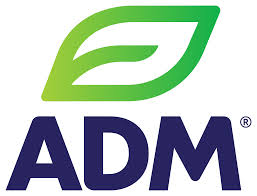
Headquarters: Illinois, United States
The Archer-Daniels-Midland company, or ADM, is a worldwide food manufacturing and commodity trading firm headquartered in Chicago, Illinois, that was formed in 1902. Grain cereals and oilseeds are processed into goods utilized in the global food, beverage, nutraceutical, industrial, and animal feed sectors at the company's more than 270 plants and 420 crop procurement sites. Commodities, ingredients, and agricultural products are produced, processed, transported, stored, and merchandised by Archer Daniels Midland Co. (ADM). The company manufactures oil seeds, wheat, maize, and various other agricultural commodities into goods such as drinks and food ingredients. ADM has worked with farmers all across the world to apply sustainable techniques on over 2.5 million hectares, or 6.5 million acres, of land. These initiatives support growers' livelihoods while improving soil health, sequestering carbon, preserving waterways, and preserving biodiversity.
2. Cargill
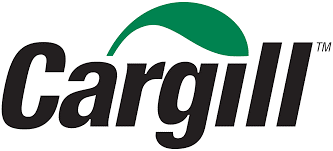
Headquarters: Minnesota, United States
American international food company Cargill, Incorporated was founded in Wilmington, Delaware, and has its headquarters in Minnetonka, Minnesota. William Wallace Cargill founded it in 1865, and based on revenue, it is the biggest privately held firm in the country. Manufacturer of financial services and agricultural goods aimed at farmers, producers, manufacturers, retailers, governments, and other stakeholders. In addition to grains and oilseeds, the company offers risk management solutions, farmer services, animal nutrition, biofuels, meat and poultry, cuisine, and industrial items, letting customers select the goods and services they want. Having the world's most sustainable food supply networks is what they aim for. Cargill strives to adopt innovative sustainable methods on a daily basis to lessen their impact on the environment and safeguard people, from small family farms to international shipping lanes.
3. BASF

Headquarters: Ludwigshafen, Germany
Chemical business BASF SE operates. Chemicals, polymers, performance goods, functional solutions, agricultural solutions, and oil & gas comprise the company's six business segments. Products for the chemical, automotive, building, agricultural, oil, plastics, electrical, electronics, furniture, and paper industries are offered by BASF, together with a variety of system solutions and services. Serving almost every industry, the company's portfolio is split into the following segments: Surface Technologies, Materials, Agricultural Solutions, Chemicals, Industrial Solutions, and Nutrition & Care. One of the biggest chemical corporations in the world, BASF has operations at over 235 manufacturing facilities throughout nearly 95 countries. Supplying everything from basic chemicals to high-end products and system solutions, the company has about 78,000 clients worldwide. The business was established in 1865. The majority of its income came from sales in Europe. BASF maintains an ethical and responsible supply chain for its plant biotechnology, fertilizer, and crop protection products. This is valid at every stage of the life cycle, including discovery, production, usage, and disposal. We carefully consider the unique characteristics of the items as well as any potential effects they may have on human health and the environment.
4. Yara International
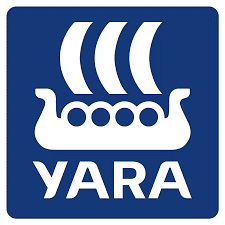
Headquarters: Oslo, Norway
The chemical firm Yara International ASA is based in Norway. It makes, sells, and distributes industrial products linked to nitrogen-based mineral fertilizers. Along with complicated and customized chemical fertilizer solutions, the company's portfolio additionally comprises mineral fertilizers based on phosphate and potash. Crop nutrition and industrial solutions are offered by Yara International ASA across Norway, the European Union, Europe, Africa, Asia, North and South America, Australia, and New Zealand. In addition to providing premium goods, Yara helps to increase food security by teaching farmers how to use best practices for increased yields and healthier land.
5. Corteva
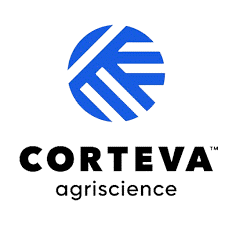
Headquarters: Indiana, United States
A prominent American provider of agricultural chemicals and seeds, Corteva, Inc. (formerly known as Corteva Agriscience) was DowDuPont's agricultural division before it was split off to become a separate publicly traded business. A holding business that sells agricultural products is called Corteva, Inc. The Seed and Crop Protection portions are how it functions. The Seed division creates and provides farms with the best possible germplasm and qualities to maximize productivity. Through seed-applied technology and nitrogen management, the Crop Protection business provides products to the worldwide agricultural input market that promote crop health both above and below ground and provide protection against weeds, insects, and other pests. It offers pest control, pasture and land management, and other services. Products are available through the company's crop protection platform to shield crop yields from disease, weeds, and insects. Pioneer, Brevant, Nutech, Power Plus, and Hoegemeyer are some of the names under which it offers seed solutions.
Recent Development
- In August 2024, to improve irrigation efficiency on cotton fields in the Mississippi Delta, Cargill and the Australian company Goanna Ag have established a new pilot project partnership. To maximize crop yields, minimize water usage, and save operating costs, this program seeks to introduce cutting-edge technologies that might completely change how and when farmers water their fields.
- In July 2024, the Leading provider of creative solutions derived from nature, ADM has published its second annual report, which describes the company's stepping-up efforts to promote regenerative agriculture methods across the globe.
- In June 2024, Precision farming techniques have been made available by John Deere to farmers to maximize agricultural yields, preserve resources, and lower greenhouse gas emissions.
- In March 2024, the company Corteva, Inc. announced the opening of Corteva Catalyst, a new platform for partnerships and investments that aims to find and commercialize agricultural breakthroughs that support the company's research and development goals and stimulate value generation.
- In June 2023, Cargill and TechnoServe have unveiled "Srishti," a revolutionary cooperation that would enable 10,000 people in Davanagere, Karnataka, to grow maize. Farmers will receive training in regenerative agriculture through this relationship, to enhance soil health, sequester carbon, and improve water quality and utilization.
About the Spherical Insights & Consulting
Spherical Insights & Consulting is a market research and consulting firm which provides actionable market research study, quantitative forecasting and trends analysis provides forward-looking insight especially designed for decision makers and aids ROI.
Which is catering to different industry such as financial sectors, industrial sectors, government organizations, universities, non-profits and corporations. The company's mission is to work with businesses to achieve business objectives and maintain strategic improvements.
CONTACT US:
For More Information on Your Target Market, Please Contact Us Below:
Phone: +1 303 800 4326 (the U.S.)
Phone: +91 90289 24100 (APAC)
Email: inquiry@sphericalinsights.com, sales@sphericalinsights.com
Contact Us: https://www.sphericalinsights.com/contact-us
Need help to buy this report?